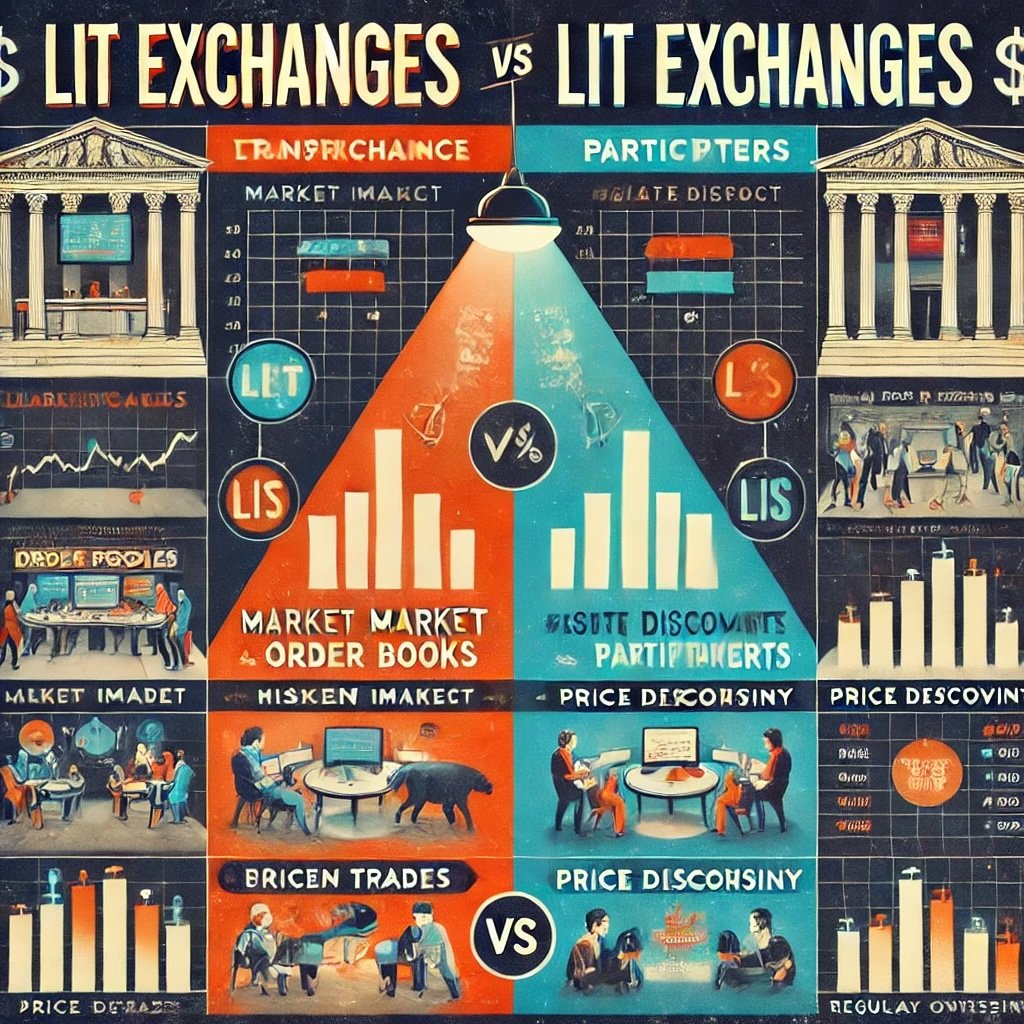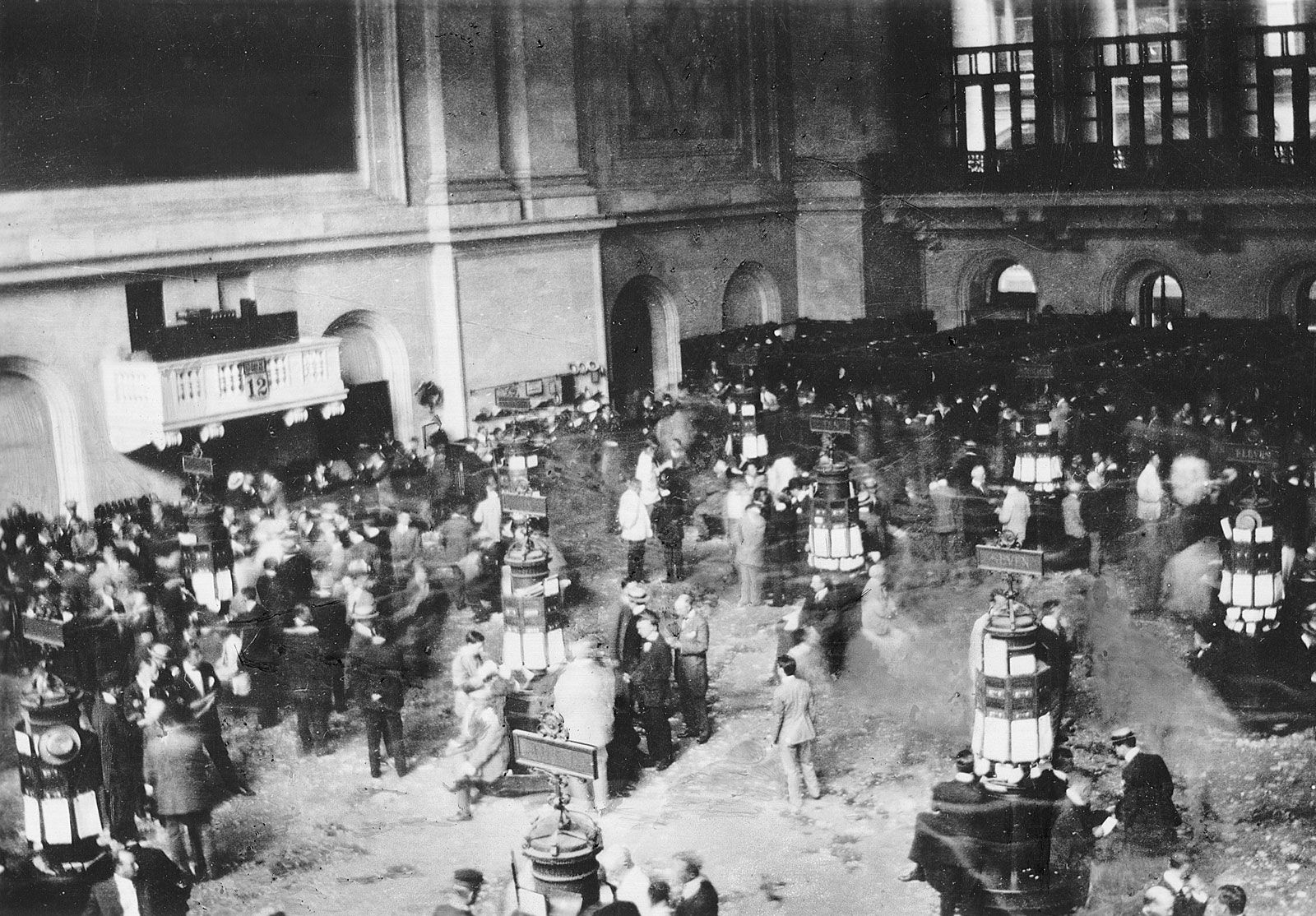Did you know that the term “dark pool” sounds like something out of a superhero movie but actually refers to private trading venues? In this article, we’ll uncover the essential role of dark pools in market liquidity. We’ll explore what dark pools are, how they affect market dynamics, and why traders—especially large investors—favor them over public exchanges. You’ll learn about their benefits, risks, and the regulations that govern these secretive venues. We’ll also discuss how dark pools impact price discovery and market transparency, as well as their influence on bid-ask spreads and overall market efficiency. Whether you’re a seasoned investor or a retail trader, understanding these factors is crucial for navigating today’s trading landscape with confidence. Join us at DayTradingBusiness for a deep dive into the murky waters of dark pools!
What Are Dark Pools in Financial Markets?
Dark pools are private trading venues where large investors buy and sell securities without revealing intentions to the public. They boost market liquidity by allowing big trades to occur discreetly, reducing market impact. This helps prevent price swings that could happen if large orders were executed on public exchanges. Dark pools give institutional traders a way to move sizable positions efficiently, keeping the market more stable.
How Do Dark Pools Affect Market Liquidity?
Dark pools increase market liquidity by allowing large traders to buy and sell without revealing their intentions, reducing market impact. They facilitate bigger transactions that might otherwise cause price swings in public markets. This helps prevent volatility and spreads orders across different venues, making it easier to execute large trades smoothly. However, they can also hide true supply and demand, potentially masking liquidity gaps from the broader market.
Why Do Traders Use Dark Pools Instead of Public Exchanges?
Traders use dark pools to execute large trades without revealing their intentions, preventing market impact. Dark pools provide anonymity, helping prevent price swings caused by big orders on public exchanges. They improve market liquidity by allowing large investors to buy or sell without disturbing the overall market. This quiet trading environment reduces the risk of front-running and price manipulation. Overall, dark pools help manage liquidity efficiently, especially for institutional traders seeking discreet, low-impact transactions.
What Are the Benefits of Dark Pools for Large Investors?
Dark pools help large investors trade big blocks of securities without revealing their intentions, reducing market impact. They provide enhanced market liquidity by allowing substantial trades to execute quietly, avoiding price swings. This privacy helps prevent front-running and minimizes price disruptions, protecting the investor’s strategy. Dark pools also offer better execution prices and more control over trade timing, making them ideal for institutional investors managing large portfolios.
Are Dark Pools Riskier Than Public Markets?

Dark pools are generally riskier than public markets because they lack transparency, making it harder to gauge true market prices and detect manipulative behavior. Their anonymity can lead to sudden price swings when large trades are revealed. While dark pools add liquidity by enabling big investors to trade discreetly, the hidden nature increases the risk of less oversight and potential for unfair practices.
How Do Dark Pools Impact Price Discovery?
Dark pools limit transparency, reducing public price discovery because large trades happen off-exchange. This can cause less accurate reflection of true market value, leading to wider spreads and potential price inefficiencies. They absorb significant liquidity, but the lack of pre-trade visibility can distort the overall market price signals.
What Regulations Govern Dark Pools?
Dark pools are mainly governed by financial regulatory agencies like the SEC in the US and ESMA in Europe. These regulations set rules on transparency, reporting, and fair access to prevent market manipulation. They require dark pools to disclose trading activity periodically and implement safeguards against manipulative practices. The goal is to balance dark pool liquidity benefits with market integrity and investor protection.
How Do Dark Pools Maintain Confidentiality?
Dark pools keep trades confidential by operating off public exchanges and using private order books. They don’t display order details until after execution, preventing market impact. This secrecy helps large investors buy or sell without revealing their intentions, maintaining market liquidity without causing price swings.
Can Dark Pools Lead to Market Manipulation?
Yes, dark pools can be used for market manipulation because their secrecy allows traders to hide large orders, potentially influencing prices or executing manipulative trades without transparency.
What Is the Difference Between Dark Pools and Alternative Trading Systems?
Dark pools are private trading venues where large investors buy and sell securities without revealing their intentions, helping to avoid market impact. Alternative Trading Systems (ATS) are broader platforms that include dark pools and other non-exchange venues, offering alternative ways to trade outside traditional stock exchanges. While dark pools focus on large block trades with anonymity, ATS can include electronic communication networks (ECNs) and other systems that facilitate different types of trading. Essentially, dark pools are a subset of ATS designed specifically for discreet, large-volume trades to improve market liquidity.
How Do Dark Pools Influence Market Transparency?

Dark pools reduce market transparency because they allow large trades to happen privately, without revealing intentions to the public. This can lead to less visibility into true supply and demand, making it harder for other traders to gauge market direction. While dark pools boost liquidity by enabling big investors to execute large orders without causing price swings, they also create opacity that can hide market activity from retail traders and analysts.
Learn about How Do Dark Pools Obscure Market Transparency?
Are Dark Pools Suitable for Retail Investors?
Dark pools provide liquidity but are not suitable for retail investors because they lack transparency and can hide large trades, increasing risks of unfavorable prices.
How Do Dark Pools Affect Overall Market Efficiency?
Dark pools boost market liquidity by allowing large traders to buy and sell without moving prices, reducing market impact. They help smooth out big transactions, preventing sudden price swings that could disrupt overall market efficiency. However, their lack of transparency can hide order flow, sometimes making price discovery less accurate. Overall, dark pools can improve efficiency for big players but may introduce opacity that affects the broader market’s transparency and fairness.
Learn about How Do Dark Pools Impact Market Fairness?
What Are the Main Types of Dark Pools?
The main types of dark pools are broker-dealer owned, agency, and electronic crossing networks. Broker-dealer dark pools are operated by large financial firms for their clients. Agency dark pools match buy and sell orders without taking a position themselves. Electronic crossing networks facilitate large trades privately, matching institutional investors directly.
How Do Dark Pools Impact Bid-Ask Spreads?
Dark pools reduce bid-ask spreads by allowing large trades to happen without moving the market, increasing liquidity. They absorb significant order flow privately, which prevents sudden price swings and keeps spreads tighter. This benefits traders by lowering transaction costs and making it easier to buy or sell large amounts without impacting the market price.
Learn about How Do Dark Pools Impact Market Fairness?
Can Dark Pools Cause Market Price Discrepancies?

Yes, dark pools can cause market price discrepancies. They trade large blocks of securities away from public exchanges, which can lead to differences between the prices in dark pools and those on the open market. This can create temporary price disparities and affect overall market transparency.
Conclusion about What Is the Role of Dark Pools in Market Liquidity?
In summary, dark pools play a significant role in enhancing market liquidity by providing a venue for large trades to occur discreetly, which can reduce market impact and improve execution prices for institutional investors. However, they also raise concerns regarding transparency, price discovery, and potential market manipulation. Traders must weigh the benefits against the risks when considering dark pools for their trading strategies. For comprehensive insights and support on navigating these complex aspects of trading, DayTradingBusiness is here to help.
Sources:
- Occasional Paper Series. Dark Pools in European Equity Markets ...
- Dark matters: The effects of dark trading restrictions on liquidity and ...
- Trading rules, competition for order flow and market fragmentation ...
- Sharks in the dark: Quantifying HFT dark pool latency arbitrage ...
- Information and optimal trading strategies with dark pools ...
- Volatility and dark trading: Evidence from the Covid-19 pandemic ...